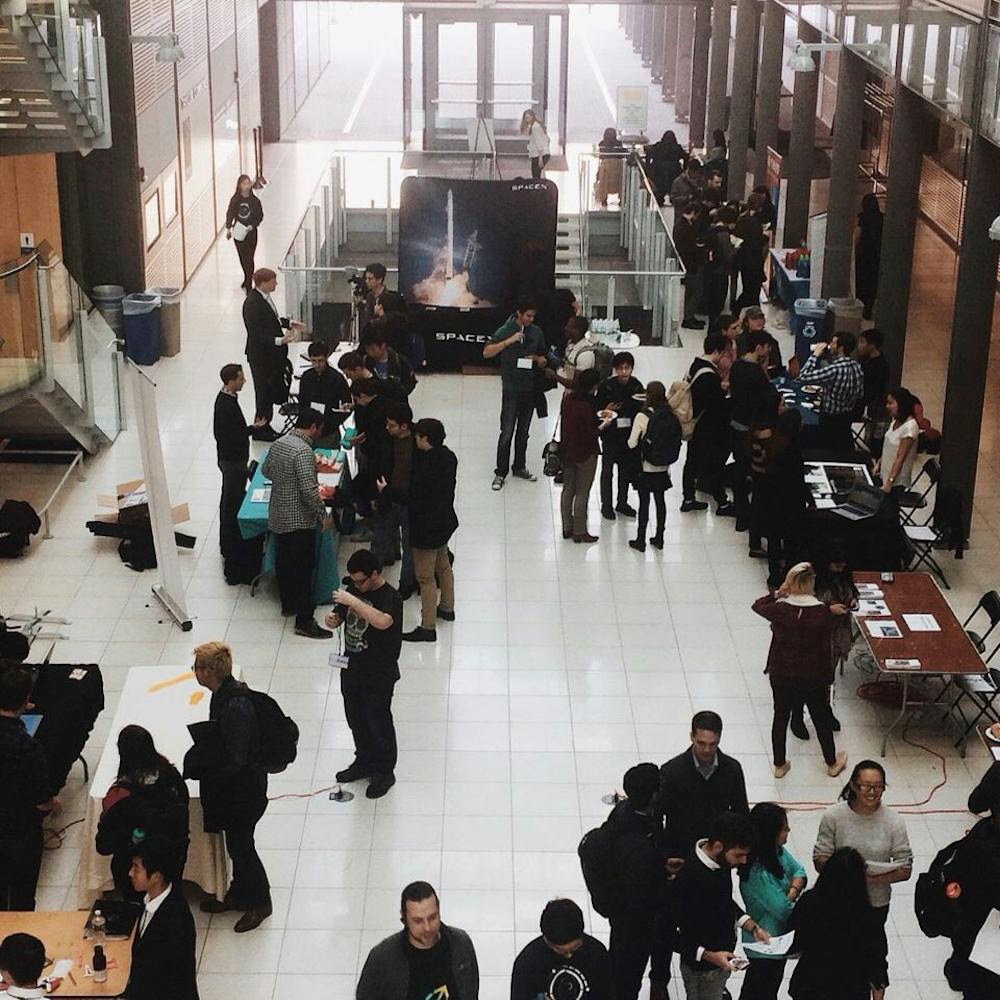This past weekend, the University’s resident futurist club hosted its first annual conference. The purpose of the group, named Envision, is to bring together cutting edge researchers and innovators to collaborate and celebrate the progress of science. Over the span of three days, Envision showcased breakthrough technologies and aspiring designs, from virtual reality art to genetically modified ants. According to Envision, some of these projects will impact us in the near future, while others may not come into fruition until the end of our lives.According to Riva-Melissa Tez, co-founder of Permutation Ventures and a panelist on a discussion on the nature of artificial intelligence, thinking about these future issues is important because “the extent of our flourishing depends on the current limit of science.”
Co-founder Luca Rade ’19 explained that preparations for the event began in April 2016 when the group first met with E-Club’s leadership. Rade described Envision as a group that didn't just ask “how can we innovate with technology,” but rather, “how can we innovate for humanity using technology.”
Envision seeks to promote innovation in the long-term on a societal scale instead of the short-term and individual level, he said. “All ambitious projects and visions still require many small steps and hard work to be realized,” Rade commented, emphasizing the use of Envision as a forum for these ideas.
Over the course of the weekend, Envision brought in student volunteers to staff the conference. One volunteer, Abby Breitfeld ’20 revealed she wanted to help staff because of the limited access opportunities it provided. Breitfeld, a prospective STEM major, got to “attend a panel on space exploration” where her favorite company, Breakthrough Starshot, presented their designs for an ultra-fast space probe. Both Rade and Breitfeld remarked on the wonder and optimism inherent in panelists and presenters.
Part of the conference focused on readily accessible technology or near-future innovations. The conference began with a guided tour of the Princeton Plasma Physics Lab, and ended with the keynote speaker Andrew Zwicker, the Head of Science Education. PPPL is focused on “plasma physics and controlled nuclear fusion research,” which could potentially provide for the energy needs of the future.
Another flagship section of the conference was Envision Entrepreneurship, a pitch competition for five startup ideas drawn from a pool of over 50. During this part of the event, graduate students from various universities presented their ideas, which ranged from a smart microbial battery to a hypothetical system to produce oxygen on Mars for fuel and human consumption. The competition was presided over by a set of judges ranging from Peter Bruce-Clark, co-founder of Permutation Ventures, to Shahram Hejazi, University professor of Entrepreneurship.
Each presenter outlined the purpose, practicality, and profit of their designs, and responded to a battery of questions from the judges. The pitch competition brought out ideas that address the problems of today in bold, new ways, and flow almost directly from the question of “what if?” The winning team, Astromech, was awarded $2,000 for their space debris collection device.
An additional aspect of the Envision conference was the theoretical, ethical debate over ideas or technology on the scientific horizon. Although most of the conversations being had with Envision were STEM related, one of the founding goals of Envision was to foster a collaboration between the sciences and the humanities to conceptualize the ethical implementation of technology. For example, the panel on artificial intelligence consisted of expectations across several disciplines, including philosophy, game theory, cybersecurity, and futurism.


During this panel discussion, Andrew Critch, a researcher at the Machine Intelligence Research Institute, commented “if you don’t understand AI, you won’t understand this century.” He added that the coming of an advanced system that is able to exceed human capability will fundamentally reshape life as we know it.
One major concern, however, among the group discussion on AI, was whether a super intelligent entity would share our values. To that end, Sarah Schneider, professor at the University of Connecticut, remarked, “we should try to work for a positive end.” Historically, the focus of AI research has been on making it faster and more adaptable, yet the panelists called into question the responsibility of researchers and activists to make sure the technology also grows ethically. The trade-offs with AI are immense; according to Critch, “if super intelligence is good, we get more of [medicine, technology, diplomacy, philosophy, etc.]. If it goes badly, then we may face existential risk.”
Looking forward, Envision will continue to host events, such as the fireside chat series, that discuss issues of technology and developments of the future.









